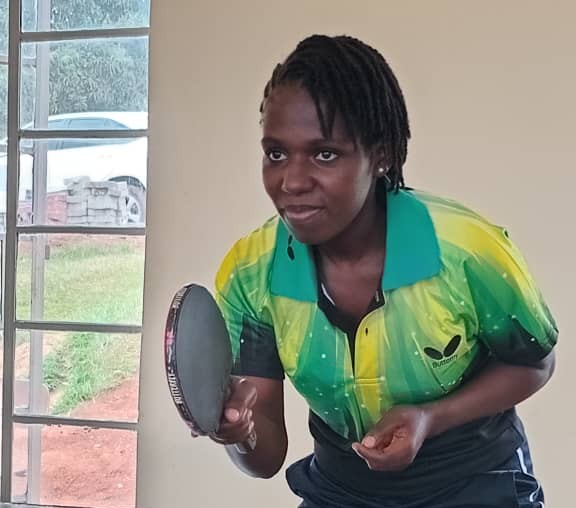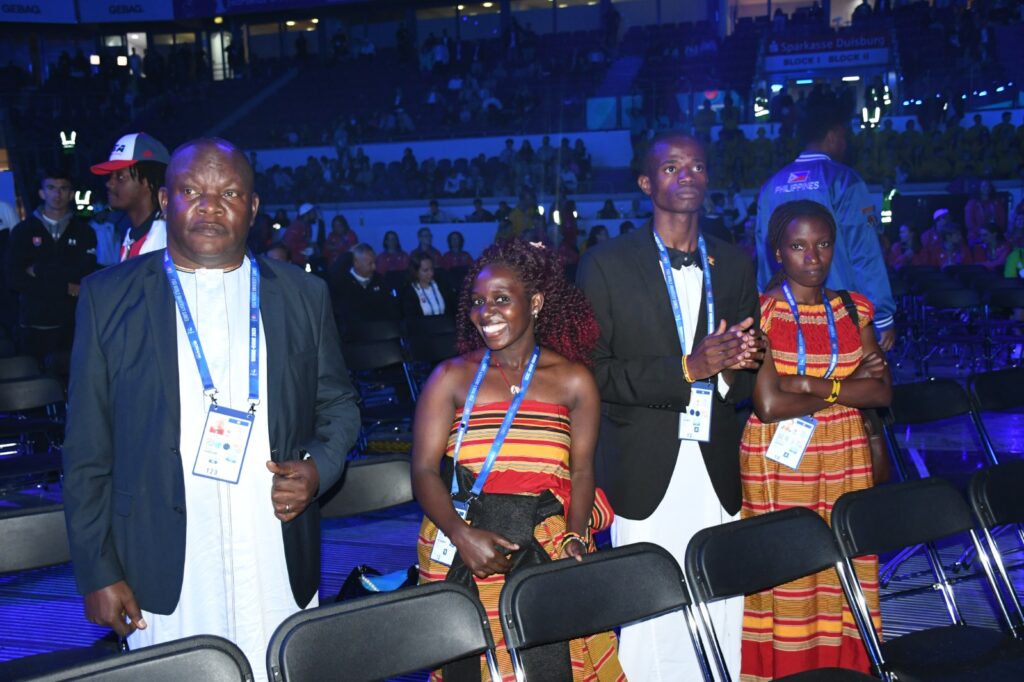By Michael Ainomugisha
When Teddy Irene Wotanabeera, a first-year Master of Public Health student at Uganda Christian University, boarded the plane to Germany this July, she carried more than her luggage. She carried the Ugandan flag, the weight of expectation, and the pride of qualifying through the East African University Games to represent her country in table tennis at the 2025 FISU World University Games.
But what awaited her in the Rhine-Ruhr region was not just the thrill of global competition. It was hunger, confusion, tears at a bus stop, and the lonely burden of being Uganda’s only table tennis player at the games.
“I’m pursuing a Master of Public Health, and I am a table tennis player. That’s what took me to Germany, to represent my country,” she says with quiet conviction.
How it started
The journey began at Entebbe Airport, where the Ugandan delegation of about 40 athletes and officials gathered. Their flight was at 6a.m., but by 9p.m. the night before, they were already waiting, hungry, sleepless, and stranded in the airport lounges.
“It was a very long period and associated with starvation, if you understand,” Wotanabeera recalls.
After a brief layover in Istanbul, she arrived at Düsseldorf Airport, only to be met with silence. “The reception wasn’t good,” she remembers.
Unlike Tanzania’s delegation, warmly greeted with flags and applause, Uganda’s athletes were left to wander. Wotanabeera and a New Vision reporter had to follow the Tanzanian team just to locate the accreditation centre. “I would say we were lost,” she admits.
Then came the hotel mix-up. She was assigned to Premier Inn City Centre in Essen, but her taxi driver took her to the wrong branch. When her name wasn’t on the register, they drove her to another, equally confusing Premier Inn. By the time she finally unpacked in her room, exhaustion was heavy on her shoulders.
But hunger had no respect for fatigue.
“I thought I could get a meal from the hotel. That was not the case,” she recalls.
With no English-speaking staff to assist her, it was a Somali stranger at the reception who stepped in. “He asked where I was from. When I said Uganda, he smiled and said he had been to Uganda and appreciated the hospitality of our country. Because of that, he offered me supper. My first meal in Germany was from a stranger.”
Walking in circles
Finding her way to Essen, where the table tennis matches were scheduled, proved to be another ordeal. Without Wi-Fi outside the hotel, Google Maps was useless. Wotanabeera found herself walking in circles until a volunteer guided her to the bus station. “It wasn’t easy, but when you’re hungry, you just have to manoeuvre,” she says.
The hardest day came just before the opening ceremony. She had gone to warm up at Essen but boarded the wrong bus back. She ended up at the wrong hotel, in the wrong part of the city. When she tried to return, every bus driver refused her.
“Each one said, ‘tired, tired, tired,’” she remembers bitterly. “It started raining. I just sat at the bus stop and cried.” Four buses passed. The fifth driver also refused until Wotanabeera threw what she calls “a tantrum that caught everyone’s attention”. He stopped, turned back, apologised, and finally drove her alone to her correct hotel. “He even bought me a soda on the way to calm me down,” she says with a faint smile.
If travel was tough, competing was even lonelier. Table tennis is a two-player warm-up sport. Irene had no partner, no coach, and no Ugandan teammate cheering her on. “It was me, myself, and myself,” she says.
Her first match, against Singapore, was a 3–0 loss.
“I was really off. You spin here, it goes out. You play a backhand, and it goes into the net,” she explains.
But she refused to bow out without a fight. Two days later, in her second match, she battled fiercely.
“I told myself I didn’t come here to lose on zeroes,” she said.
The result was a narrow 3–2 loss, but to her, it felt like a personal victory.
“I had no coach, no supporter,” she reflects.
Her opponent’s team shouted to disrupt her. Wotanabeera kept scanning the crowd, hoping to see a Ugandan face, but no one came, apart from New Vision’s Michael Nsubuga, who came in the last lap of the game.

Learning resilience
Still, there were moments of light. At a cultural exhibition, Wotanabeera tried on a traditional Korean dress, the hanbok.
“I love Korean culture and wearing it and taking pictures, that was the most amazing part of the journey,” she says, her voice lifting.
And of course, there was pride in marching into the stadium for the opening ceremony, carrying Uganda with her, which was unforgettable, even if the memory was tinged by the tears of the day before.
Those two weeks in Germany left Wotanabeera thoughtful about contrasts.
“One of the questions that disturbed me is why Germans aren’t as hospitable as people in Uganda,” she says. She also struggled with Germany’s heavy smoking culture.
“I get a weird reaction to smoke. But in Germany, people really smoke a lot and everywhere. “It was disturbing,” she added.
What she gained, however, was resilience.
“Being alone doesn’t mean being helpless; I learnt to navigate and to solve problems and still put myself out there representing Uganda,” she says.


